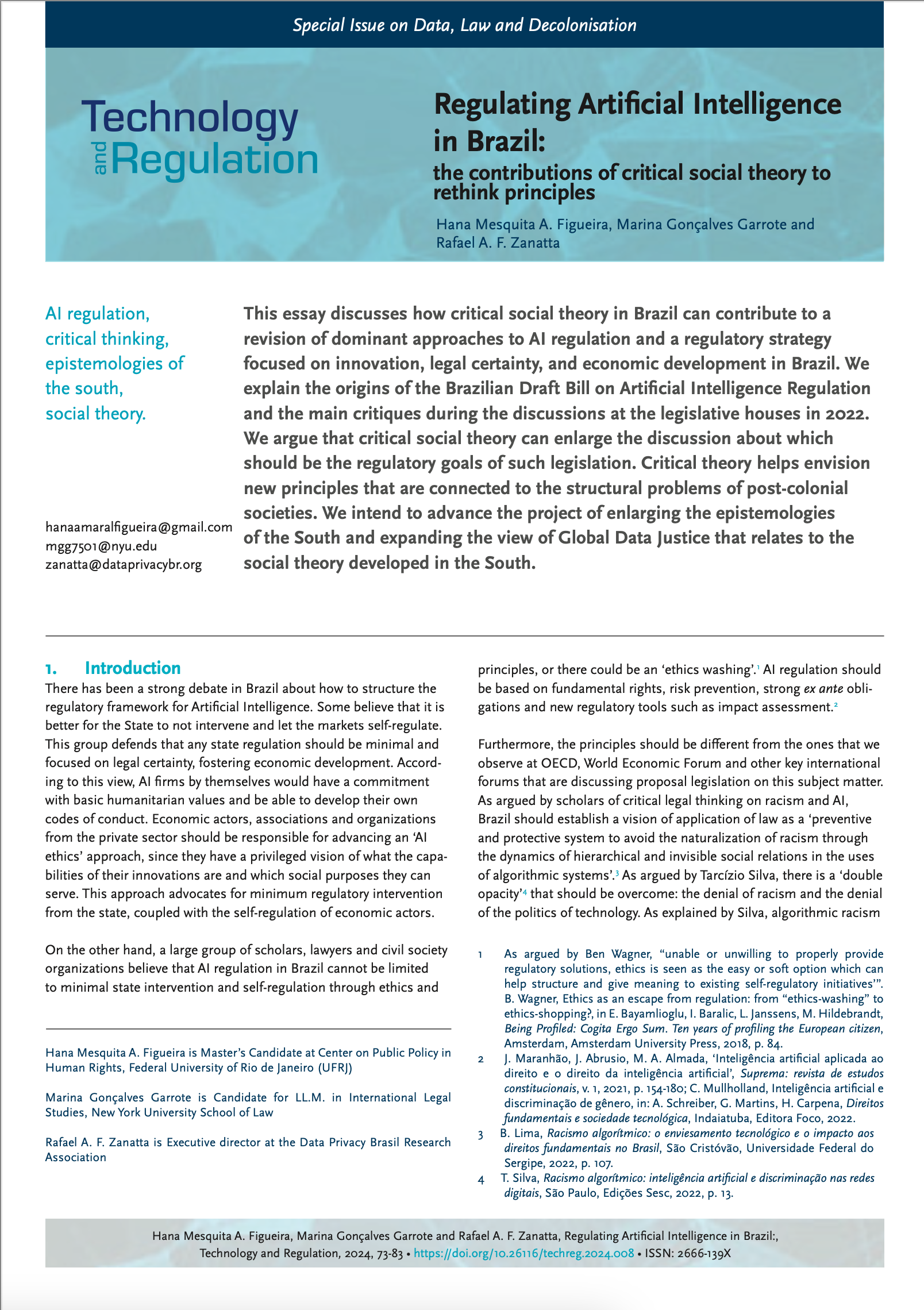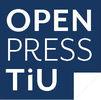Regulating Artificial Intelligence in Brazil
the contributions of critical social theory to rethink principles
DOI:
https://doi.org/10.71265/czjtfr98Abstract
This essay discusses how critical social theory in Brazil can contribute to a revision of dominant approaches to AI regulation and a regulatory strategy focused on innovation, legal certainty, and economic development in Brazil. We explain the origins of the Brazilian Draft Bill on Artificial Intelligence Regulation and the main critiques during the discussions at the legislative houses in 2022. We argue that critical social theory can enlarge the discussion about which should be the regulatory goals of such legislation. Critical theory helps envision new principles that are connected to the structural problems of post-colonial societies. We intend to advance the project of enlarging the epistemologies of the South and expanding the view of Global Data Justice that relates to the social theory developed in the South.
Downloads

Downloads
Published
Versions
- 22-03-2024 (2)
- 18-03-2024 (1)
Issue
Section
License
Copyright (c) 2024 Hana Mesquita, Marina Garrote , Rafael Zanatta

This work is licensed under a Creative Commons Attribution-NonCommercial-NoDerivatives 4.0 International License.






